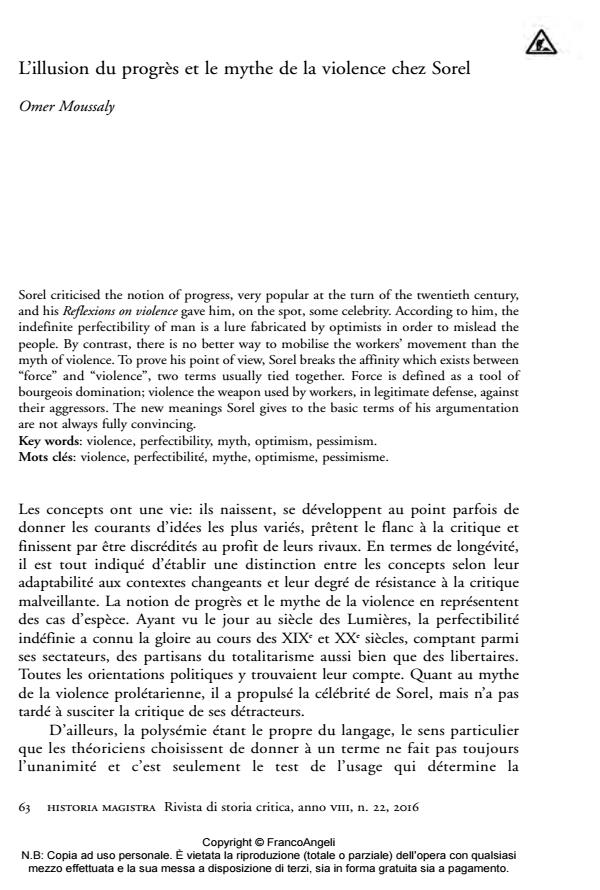L’illusion du progrès et le mythe de la violence chez Sorel
Titolo Rivista HISTORIA MAGISTRA
Autori/Curatori Omer Moussaly
Anno di pubblicazione 2017 Fascicolo 2016/22 Lingua Francese
Numero pagine 25 P. 63-87 Dimensione file 129 KB
DOI 10.3280/HM2016-022006
Il DOI è il codice a barre della proprietà intellettuale: per saperne di più
clicca qui
Qui sotto puoi vedere in anteprima la prima pagina di questo articolo.
Se questo articolo ti interessa, lo puoi acquistare (e scaricare in formato pdf) seguendo le facili indicazioni per acquistare il download credit. Acquista Download Credits per scaricare questo Articolo in formato PDF

FrancoAngeli è membro della Publishers International Linking Association, Inc (PILA)associazione indipendente e non profit per facilitare (attraverso i servizi tecnologici implementati da CrossRef.org) l’accesso degli studiosi ai contenuti digitali nelle pubblicazioni professionali e scientifiche
Sorel criticised the notion of progress, very popular at the turn of the twentieth century, and his Reflexions on violence gave him, on the spot, some celebrity. According to him, the indefinite perfectibility of man is a lure fabricated by optimists in order to mislead the people. By contrast, there is no better way to mobilise the workers’ movement than the myth of violence. To prove his point of view, Sorel breaks the affinity which exists between "force" and "violence", two terms usually tied together. Force is defined as a tool of bourgeois domination; violence the weapon used by workers, in legitimate defense, against their aggressors. The new meanings Sorel gives to the basic terms of his argumentation are not always fully convincing. Mots clés: violence, perfectibilité, mythe, optimisme, pessimisme.
Keywords:Violence, perfectibility, myth, optimism, pessimism.
Omer Moussaly, L’illusion du progrès et le mythe de la violence chez Sorel in "HISTORIA MAGISTRA" 22/2016, pp 63-87, DOI: 10.3280/HM2016-022006